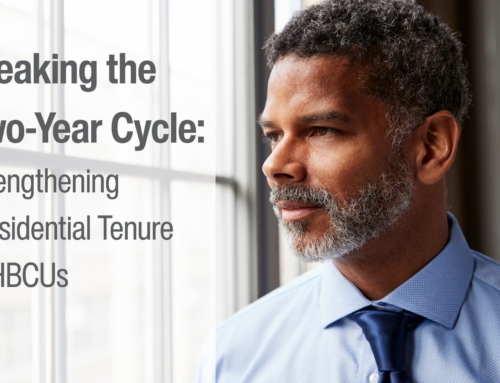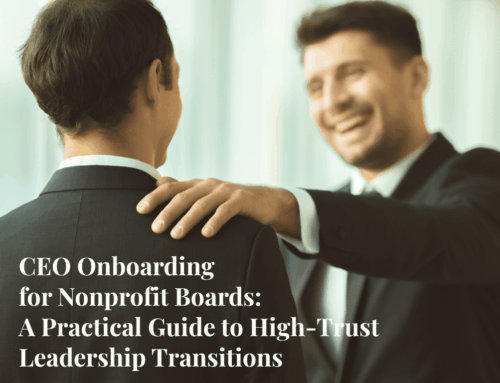Executive search is a business where you learn something new from every search, every interview and every client interaction; after all, we work with the most complex of all variables, people. I recently completed one of my more interesting searches, which was for a top diversity executive for the InterContinental Hotels Group (IHG), and took away quite a few insights on the importance of diversity.
I’d like to state from the get go that I am not a diversity expert. My goal in telling you about my recent experience is simply to share with you my personal observations on diversity and some information I gathered from the “real” diversity experts I came across during the IHG search.
When it comes down to it, the executive search business is primarily about understanding how a business makes money and how an individual role contributes to an organization’s ability to achieve or develop strategies to make money. Once you get a handle on that information, the search itself becomes much easier. My first challenge on the IHG search was to understand how diversity, as a business strategy, drives the organization towards achieving its overall business objectives (i.e. increasing shareholder value).
Initially, I feared that the reason I did not already have this knowledge was because I am a white male in my 30’s, but as I dove into the search I realized that many people of different genders and cultures don’t get it either. What I learned about diversity from those that do “get it”, is that diversity done right is a strategic business initiative that enables companies to make proactive efforts to attract the best and brightest employees, maximize their productivity, leverage their knowledge to better understand their customers and create new market opportunities.
If we adopt this non-emotional, very rational business approach to diversity, it becomes an inevitable strategic necessity – not a quota mindset, a compliance mandate, an EEOC preventative or a fear driven task. Diversity is a business strategy with a profit motive just like other strategies such as Six Sigma or Lean Manufacturing. When we (as a society) approach the subject from an emotional point of view, as many corporations are doing today, we lose focus on what can be achieved with diversity in the workplace and miss out on the opportunity to positively impact the direction of business.
When most people in America hear the word “diversity”, I believe the first thing they think of is the contrast of people of color in the workplace. There are in fact people that view diversity in the work place as a necessary evil – a form of penance for discrimination based wrongs of the past. Unfortunately the media often re-enforces this same message and corporations continue to accept it as valid. But from what I learned at IHG, it seems that if the world stops focusing on what’s politically correct, and starts focusing more on how diversity can yield significant business benefits, the same goals can be achieved with less misunderstanding and resistance.
During this search, I encountered a significant group of Diversity Leaders who were part of their companies’ strategic leadership teams and clearly had a ‘seat at the table’. Each individual in this group had one thing in common – they were business executives that had or could run any business function, but happened to be leading the diversity function within their respective organizations. These were the individuals who truly understood how a diversity strategy could drive value for an organization; it was these same individuals who were responsible for educating me through several valuable insights, some of which I am sharing with you today.
The problem, as I see it, is that much of the world measures an organization’s diversity strictly by quotas (or simple numerical representation) – which is really the wrong way to measure diversity if you want to win the hearts and minds of the “non-diverse / non-believing” population. Measuring organizations on their customer base and the demographics of their employee base would provide a much better criterion for all those “Top 50” lists and would help many people who think diversity is simply about checking boxes to see the true value of diversity. If organizations focus first on better understanding the importance of diversity within their customer base (or potential customer base), they will be better prepared to attract and retain key employees who can foster their corporate growth plans.
Today, some companies embark on executive searches and ask their search partners to only consider diverse candidates simply because they lack diversity as a company. I understand the reasoning behind this request, but it’s a reactive defense (it’s also illegal) and says a lot about why that company is lacking diversity in the first place. It also almost guarantees they will have a hard time recruiting strong diversity candidates to their organization without third party assistance. (How would you like to be part of an ill informed quota driven initiative? It’s stigmatizing and belittling…)
To be honest, prior to working with IHG, I had yet to have an organization ask me to find a diverse candidate slate for specific business reasons that go beyond the typical “we need more diversity around here” statements. Conversely, IHG recognized certain emerging markets and target communities for franchisee investment, and thus a chief diversity officer (reporting directly to the CEO) and a diverse perspective were identified as critical to their ability to succeed. Again, diversity simply to meet HR focused representation objectives only garners limited support from impassioned people, but diversity for strategic business advancement is difficult for anyone not to support.
If an organization would just say “we have growth strategies that will be further advanced by a diverse perspective in this role and this perspective will ultimately make our organization more successful”, I’d have top candidates tripping over me to get to that organization and I’d have dozens of people referring me to strategic individuals to aid in that quest – and they’d happen to be diverse. As you evaluate your 2006 executive requirements, take a minute to think about the role of diversity in your organization’s business strategy. You may be surprised by how you can shape your company’s perspectives by driving more strategic diversity initiatives that are comprehensively supported (everyone’s success depends on them), and how these initiatives can directly impact your organization’s success for years to come.





